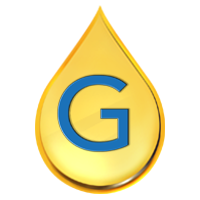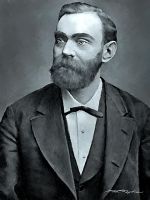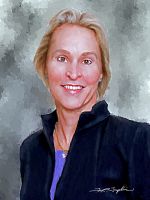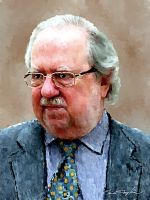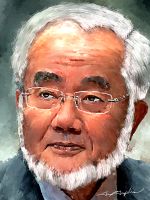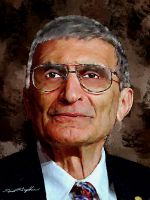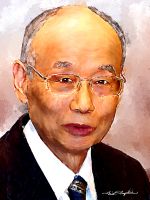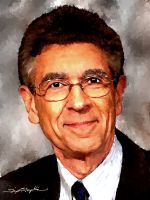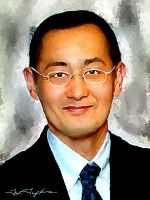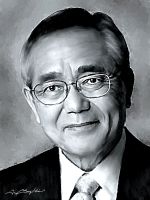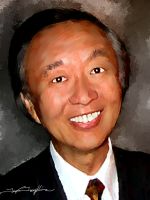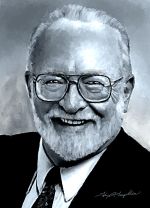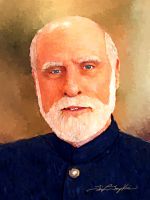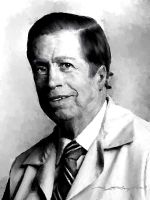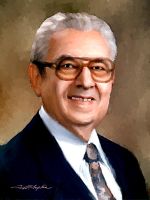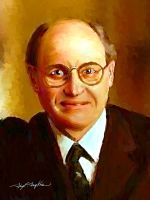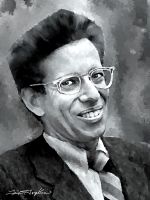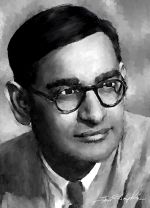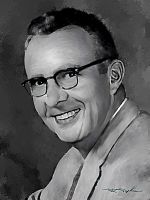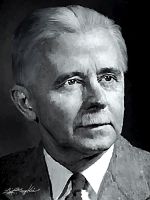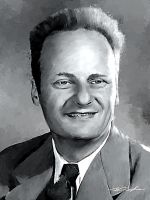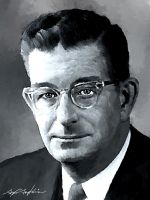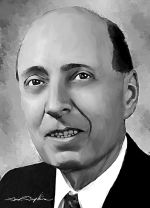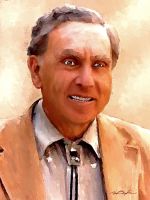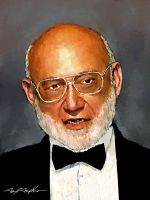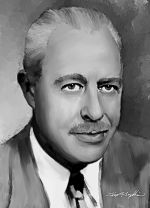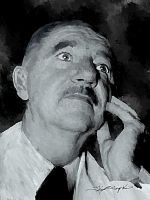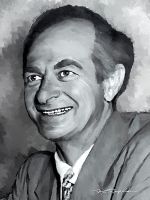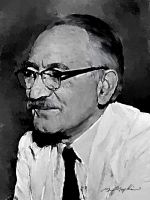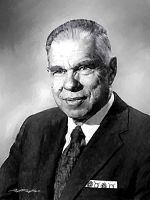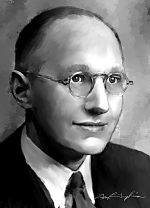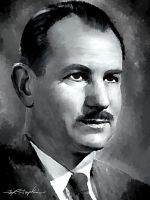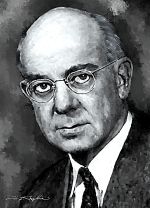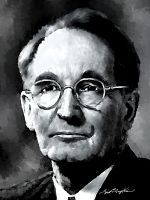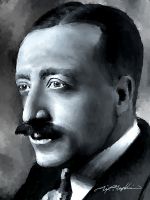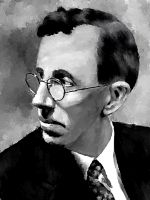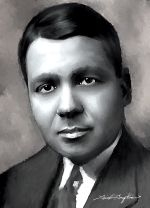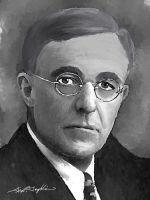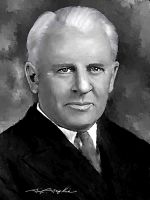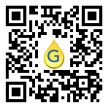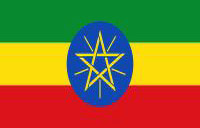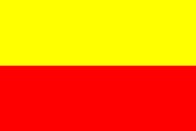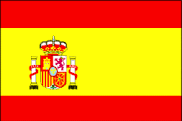
Alfred Nobel
Chemist, Inventor, Awesome Administrator, Social Reformer.
"It could and should soon come to pass that all states pledge themselves collectively to attack an aggressor. That would make war impossible, and would force even the most brutal and unreasonable Power to appeal to a court of arbitration, or else keep quiet."
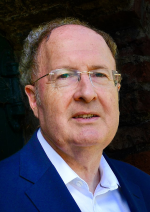
Photo: Aga Machaj, Wiki
Sir Gregory Winter
The Nobel Prize in Chemistry 2018
Co-nobelist: Frances H. Arnold, George P. Smith
"for the directed evolution of enzymes"
Frances H. Arnold Ph.D
The Nobel Prize in Chemistry 2018
Nobel co-recipients George P. Smith, Sir Gregory P. Winter
"for the directed evolution of enzymes"
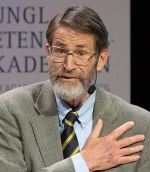
Photo Bengt Nyman, Wiki.
George Smith
The Nobel Prize in Chemistry 2018
Nobel co-recipients: Frances H. Arnold, Sir Gregory P. Winter
"for the phage display of peptides and antibodies."
James P. Allison Ph.D.
The Nobel Prize in Physiology or Medicine 2018
Nobel co-recipient Tasuku Honjo
Cancer Immunologist. Discovered cancer therapy by inhibition of negative immune regulation. Pioneer. Place breaks/check points on inhibitory immune cells to attack cancer cells -
curative. Interest: How T cells work. First Nobel Prize for cancer therapy. Family history of cancer. Modest.
"Motivation of scientists: to know what nobody else knows."
Yoshinori Ohsumi
The Nobel Prize in Physiology or Medicine 2016
Award: "for his discoveries of mechanisms for autophagy."
Aziz Sancar
The Nobel Prize in Chemistry 2015
Nobel co-recipients: Tomas Lindahl, Paul Modrich
"for mechanistic studies of DNA repair."
Satoshi Omura
The Nobel Prize in Physiology or Medicine 2015
Nobel co-recipient: William C. Campbell, Tu Youyou
Award: "for their discoveries concerning a novel therapy against infections caused by roundworm parasites."
Robert J. Lefkowitz MD
Nobel Prize in Chemistry 2012
National Medal of Science - Biological Sciences 2007 USA
Nobel co-recipient Brian K. Kobilka
Physician- Cardiologist, Scientist. G-protein-coupled receptors;
approximately half of all medicines used today use this kind of receptor.
"Strong family history of coronary artery disease ... at age 50 I had quadruple bypass surgery [1994]. I minimize my risk factors with daily physical exercise, a vegetarian diet and appropriate medications".
Shinya Yamanaka
The Nobel Prize in Physiology or Medicine 2012
Nobel co-recipient: Sir John B. Gurdon
Award: "for the discovery that mature cells can be reprogrammed to become pluripotent."
Ei-ichi Negishi
The Nobel Prize in Chemistry 2010
Nobel Co recipients Richard F. Heck, Akira Suzuki
Organic Chemist. Inventor of organozinc variant of the palladium catalyzed cross-coupling reaction. Read voraciously including "how to …" publications. Dreamt of Nobel half century prior to being awarded prize. Upon arriving in US and discovering Nobelists visiting UPenn, realized that being awarded the Nobel could happen to anybody including himself.
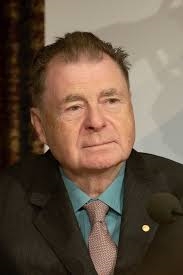
Photo: Holger Motzkau/Wikimedia Commons
Richard F. Heck Ph.D.
Nobel Prize in Chemistry 2010
Nobel co-recipients Ei-ichi Negishizz, Akira Suzuki
Physical organic chemist. Palladium-catalyzed cross-coupling reaction. Sole author - 7 consecutive papers. Heck reaction: important concept, tool for organic and medicinal chemists; fuorescence labeling of DNA bases - sequencing DNA/Genome. Thinner computer screens in future. "Great art in test tube."
Growing orchids in early teens lead to passion for chemistry.
Charles Kao Ph.D.
The Nobel Prize in Physics 2009
Co-nobelist: Willard S. Boyle, George E. Smith
Prize motivation: "for groundbreaking achievements concerning the transmission of light in fibers for optical communication."
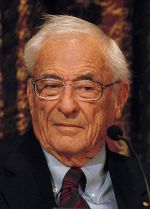
Photo Prolineserver, Wiki.
Willard Boyle Ph.D.
The Nobel Prize in Physics 2009
Co-nobelists: Charles K. Kao, George E. Smith
Prize motivation: "for the invention of an imaging semiconductor circuit - the CCD sensor."
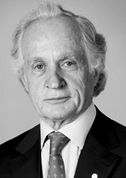
Photo: © Nobel Foundation
Mario R. Capecchi Ph.D.
The Nobel Prize in Physiology or Medicine 2007
Nobel prize also awarded to Sir Martin J. Evans and Oliver Smithies
National Medal of Science - Biological Sciences 2001
Molecular Geneticist. Introduced specific gene modifications in mice by using embryonic stem cells. Gene Targeting, Homeobox Genes, Development, Behavior.
Mother incarcerated as political prisoner, Germany. "At age 4½, I set off on my own, living in streets, orphanages; joining gangs of homeless children; generally hungry. Vivid recollections, brutal beyond description."
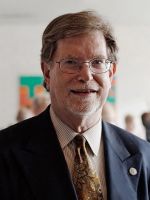
Photo Nomo Michael Hoefner, Wiki.
George Smoot Ph.D.
The Nobel Prize in Physics 2006
Co-nobelist: John C. Mather
Prize motivation: "for their discovery of the blackbody form and anisotropy of the cosmic microwave background radiation."
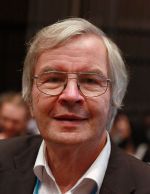
Photo Markus Possel, Wiki.
Theodor Hansch Ph.D.
The Nobel Prize in Physics 2005
Co-nobelists: Roy J. Glauber, John L. Hall
Prize motivation: "for their contributions to the development of laser-based precision spectroscopy, including the optical frequency comb technique."
Paul C. Lauterbur Ph.D.
The Nobel Prize in Physiology or Medicine 2003
Nobel Co-recipient Sir Peter Mansfield
The President's National Medal of Science - Physical Sciences 1987
The National Medal of Technology and Innovation 1988
Chemist. Magnetic resonance imaging.
"Every great idea in history has the red stamp of rejection on its face. If you scratch any innovation's surface, you'll find the scars: they've been roughed up and thrashed around by the masses and the leading minds before they made it into your life."
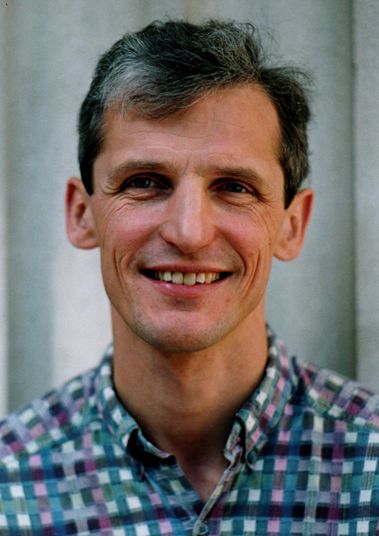
Photo: Courtesy Dr.Wolfgang Ketterle
Wolfgang Ketterle Ph.D.
The Nobel Prize in Physics 2001
Nobel co-recipients Eric A. Cornell, Carl E. Wieman
Physicist - Atomic Physics. Hobbies: Running, Bicycling.
"...the quest for pure knowledge and the pursuit of goals which are only vaguely defined and change as the research progresses... I didn't anticipate that the best was still to come".
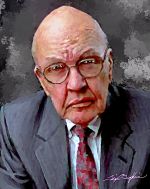
Photo Texas Instruments. Painting Tim Tompkins PaintHistory.com
Jack S. Kilby Ph.D.
The Nobel Prize in Physics 2000
Co-nobelists Zhores Alferov, Herbert Kroemer
Prize: "for his part in the invention of the integrated circuit.
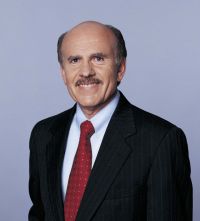
Photo: Courtesy Dr.Louis Ignarro
Louis J. Ignarro Ph.D.
The Nobel Prize in Physiology or Medicine 1998
Nobel co-recipients: Robert F. Furchgott and Ferid Murad
Molecular & Medical Pharmacologist
While testifying before Congress in 2000, Ignarro remarked: "Only in America could the son of an uneducated carpenter receive the Nobel Prize in Medicine."
Vinton Cerf Ph.D.
National Medal of Technology and Innovation 1997
One of two Fathers of the Internet. TCP/IP protocols. Internet
Architecture. Chief Internet Evangelist, Google. Interplanetary Internet.
Living Legend.
"Brilliant, indescribably enthusiastic, humorous, happy, treats people
extremely well. It would be nice to go to work every day and work with
people like Vint Cerf." – R.V. Nagaveni, Founder, Ganga Library.
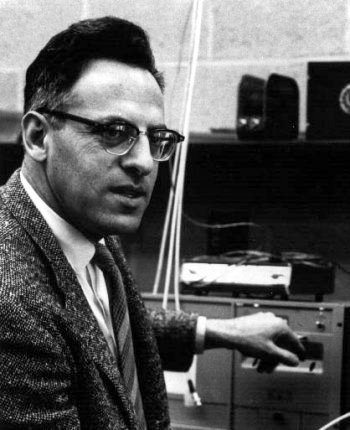
Photo: US Govt/Wikipedia
Frederick Reines B.S. (Mechanical Engineering), Ph.D. (Physics)
The Nobel Prize in Physics 1995
National Medal of Science - Physical Sciences 1983
Nobel co-recipient Martin L. Perl
Award: "for the detection of the neutrino"
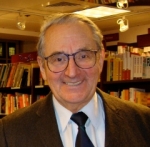
Photo: Elias .J. Corey at Harvard. Creator: Trvthchem personal photo. 19 Nov 2007. Source: Wikimedia Commons.
Elias James Corey Ph.D.
The Nobel Prize in Chemistry 1990
Organic Chemist - Interested in application of organic chemistry to human health. His groups have achieved a multitude of total syntheses of complex molecules. Originator of retrosynthetic analysis. Recognized as "Most Cited Author in Chemistry" by American Chemical Society in 2002.
"Organic chemistry was especially fascinating with its intrinsic beauty and its great relevance to human health."
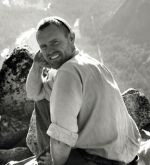
Photo: Yosemite Climbing Assoc/Wikipedia
Henry W. Kendall Ph.D.
The Nobel Prize in Physics 1990
Co-nobelist Jerome I. Friedman, Richard E. Taylor
Award: "for their pioneering investigations concerning deep inelastic scattering of electrons on protons and bound neutrons, which have been of essential importance for the development of the quark model in particle physics"
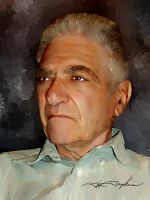
Photo Sigismund von Dobschutz. Painting Tim Tompkins PaintHistory.com
Jack Steinberger Ph.D.
Nobel Prize in Physics 1988
National Medal of Science - Physical Sciences 1988 USA
Nobel Prize shared with Leon M. Lederman, Melvin Schwartz
Physicist, Cosmologist, Astrophysicist. Hobbies: Playing the Flute, Tennis, Mountaineering, Sailing.
To Ganga Library founder on 3 Aug 2014, "I have used your questions to me as an incentive to prepare a list of my publications".
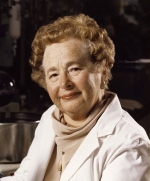
Photo: Wikimedia Commons
Gertrude B. Elion M.S.[Chemistry]
The Nobel Prize in Physiology or Medicine 1988
Co-Nobelists: Sir James W. Black, George H. Hitchings
National Medal of Science - Chemistry 1991
Chemist, Pharmacologist. Discovered principles for drug treatment; developed drugs - anticancer, immunosuppressive, antiviral, antibacterial, anti-gout, anti-malarial. Purines.
"I was a child with an insatiable thirst for knowledge. My beloved grandfather died of cancer when I was 15. I was highly motivated to discover a cure for this terrible disease".
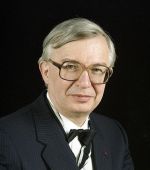
Photo German Federal Archives, Wiki.
Jean-Marie Lehn Ph.D.
The Nobel Prize in Chemistry 1987
Nobel co-recepients Donald J. Cram, Charles J. Pedersen
Chemist. Interests: Supramolecular chemistry, Self-assembly and self-organization, Constitutional dynamic chemistry; Music, Philosophy.
Founding director, 'Chemistry, a European Journal'. Gave starting impetus to other European journals, rare manifestation of European spirit and supranationality bridging historical divides!
President, International Organization for Chemical Sciences in Development, helping chemists in developing countries.
Robert Merrifield Ph.D.
The Nobel Prize in Chemistry 1984
Award: "for his development of methodology for chemical synthesis on a solid matrix"
Herbert C Brown Ph.D.
The Nobel Prize in Chemistry 1979
The President's National Medel of Sciences - Physical Sciences, 1969
Nobel co-recipient Georg Wittig
Organic Chemist. Development of use of boron into important reagents in organic synthesis. School, advanced several times, graduating at 12; refused further advancement, avoiding being sister's classmate.
Graduating, Depression years, future wife Sarah gave him gift, Stock's 'Hydrides of Boron and Silicon' because cheapest chemistry book! Led to Nobel Prize!
Daniel M. Nathans M.D.
The Nobel Prize in Physiology or Medicine 1978
Nobel co-recipients Werner Arber, Hamilton O. Smith
National Medal of Science - Biological Sciences 1993
Physician, Molecular Biologist - Genetics. Restriction enzymes and their application to molecular genetics. Groundwork for human genome project, drug insulin. Able administrator - high signal-to-noise ratio.
"Valuable internship year in medicine with masterful clinician Robert Loeb; The glimpses of human strength and frailty that a physician sees are still with me."
Howard M. Temin Ph.D.
The Nobel Prize in Physiology or Medicine 1975
Nobel Co-recipients David Baltimore, Renato Dulbecco
National Medal of Science - Biological Sciences 1992
Virologist. Interaction between tumor viruses and genetic material of cell. DNA provirus and RNA-directed DNA synthesis. Reverse Transcriptase. Intellectually courageous. Civic minded.
How fortunate to live in a country at a time and in a social class that has enabled us to realize our potential. Not been possible for many.
Paul J. Flory Ph.D.
The Nobel Prize in Chemistry 1974
National Medal of Sciences - Physical Sciences 1974
Award: "for his fundamental achievements, both theoretical and experimental, in the physical chemistry of the macromolecules"
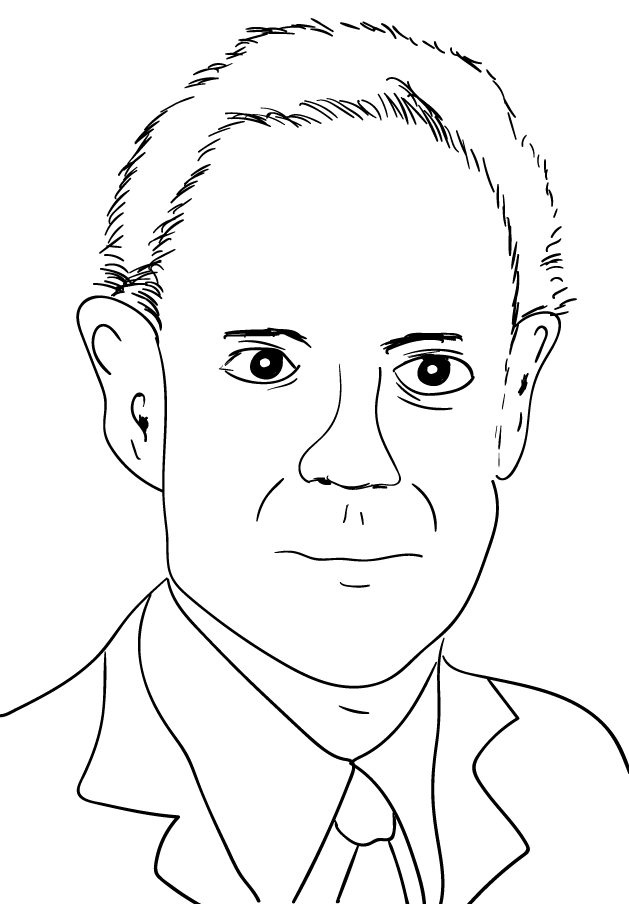
Drawing: Newton Llorente
Stanford Moore Ph.D.
The Nobel Prize in Chemistry 1972
Co-nobelist Christian Anfinsen, William H. Stein
Award: "for their contribution to the understanding of the connection between chemical structure and catalytic activity of the active centre of the ribonuclease molecule"
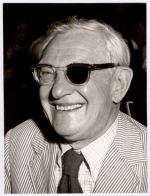
Photo: NIH
Julius Axelrod Ph.D.
The Nobel Prize in Physiology or Medicine 1970
Co-Nobelists Sir Bernard Katz, Ulf von Euler
Pharmacologist. Neurophysiologist. Mechanism for storage, release, inactivation of humoral transmitters in nerve endings. Discovered drug metabolic pathways: hydroxylation, demethylation, deamination, conjugation. Led to liver's microsomal drug-metabolizing enzymes discovery. Pheochromocytoma. Carboxylmethyl transferase. Melatonin.
Ideal mentor. Infectious exhilaration in discovery. Research was genuine fun. Students came out of lab with same attitude.
H. Gobind Khorana Ph.D.
The Nobel Prize in Physiology or Medicine 1968
National Medal of Sciences - Biological Sciences 1978
Co-Nobelists: Robert W. Holley, Marshall W. Nirenberg
Organic Chemist, Biochemist. 'Genetic code interpretation, function in protein synthesis. Pioneered synthesizing biologically active gene, determine codon triplets'
nucleotides order. Unraveled genetic code, how nucleic acids form proteins. Pioneered genetic engineering. Multidisciplinary work.
"Wife brought sense of purpose. In foreign country, I felt out of place everywhere, at home nowhere."
Luis Alvarez Ph.D.
The Nobel Prize in Physics 1968
Award: "for his decisive contributions to elementary particle physics, in particular the discovery of a large number of resonance states, made possible through his development of the technique of using hydrogen bubble chamber and data analysis"
Haldan K. Hartline M.D.
The Nobel Prize in Physiology or Medicine 1967
Nobel co-recipients Ragnar Granit, George Wald
Physician, Biophysicist. Physiological and chemical visual processes in eye.
"Vision itself is a dynamic process. There is little in the world that stands still, at least not as imaged in our retinas, for our eyes are always moving. The visual system is almost exclusively organized to detect change and motion."
Hans Bethe Ph.D.
The Nobel Prize in Physics 1967
Award: "for his contributions to the theory of nuclear reactions, especially his discoveries concerning the energy production in stars"
Robert B. Woodward Ph.D.
The Nobel Prize in Chemistry 1965
National Medal of Science - Physical Sciences 1964
Award: "for his outstanding achievements in the art of organic synthesis"
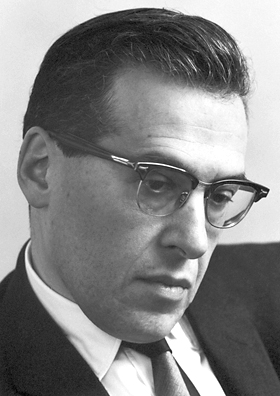
Photo: public domain/Wikipedia
Julian Schwinger Ph.D.
The Nobel Prize in Physics 1965
National Medal of Science - Physical Sciences 1964
Nobel co-recipients Sin-Itiro Tomonaga, Richard P. Feynman
Award: "for their fundamental work in quantum electrodynamics, with deep-ploughing consequences for the physics of elementary particles"
Eugene Wigner Ph.D.
The Nobel Prize in Physics 1963
The President's National Medal of Science - Physical Sciences 1968
Nobel co-recipients Maria Goeppert Mayer, J. Hans D. Jensen
Award: "for his contributions to the theory of the atomic nucleus and the elementary particles, particularly through the discovery and application of fundamental symmetry principles"
Robert Hofstadter Ph.D.
The Nobel Prize in Physics, 1961
Nobel co-recipient Rudolf Mössbauer
National Medal of Science - Physical Science 1986
Nuclear and particle physicist. Discoverer of sodium iodide scintillation counters. Carried out electron scattering from atomic nuclei, revealing structure of nuclei and nucleons. Original proposer of two-mile SLAC linear accelerator. Pioneer of gamma-ray astronomy, using EGRET detector aboard the Compton observatory. Research in laser fusion, applications of physics to medicine.
Joshua Lederberg Ph.D.
The Nobel Prize in Physiology or Medicine 1958
Nobel co-recipients George Beadle, Edward Tatum
National Medal of Science - Biological Sciences 1989
Geneticist. Genetic recombination and organization of genetic material of bacteria. Artificial intelligence. NASA seeking life on Mars. Fastest rate possible for growth of bacterial cell and why. Nobel Prize at age 33.
At Nobel Banquet, "Pride is humbled as humility is exalted in the dignity and splendor of this occasion."
Walter Brattain Ph.D.
The Nobel Prize in Physics 1956
Co-Nobelists: William B. Shockley, John Bardeen
Award: "for their researches on semiconductors and their discovery of the transistor effect"
Vincent du Vigneaud Ph.D.
The Nobel Prize in Chemistry 1955
Award: "for his work on biochemically important sulphur compounds, especially for the first synthesis of a polypeptide hormone"
Linus Pauling Ph.D.
The Nobel Prize in Chemistry 1954
The Nobel Peace Prize 1962
National Medal of Sciences - Physical Sciences 1974
Award: "for his research into the nature of the chemical bond and its application to the elucidation of the structure of complex substances."
Also awarded Nobel Peace Prize 1962. As of Sept. 2019, only four persons and two organizations have been awarded the Nobel Prize multiple times.
Selman A. Waksman
The Nobel Prize in Physiology or Medicine 1952
Ukrainian-born American Microbiologist, Biochemist. Isolated several antibiotics including Streptomycin for Tuberculosis and Neomycin. Proceeds earned from patents funded Waksman Institute of Microbiology and Waksman Foundation for Microbiology.
"The Lord hath created medicines out of the earth; and he that is wise will not abhor them. Ecclesiasticus, XXXVIII , 4"
Glenn T. Seaborg Ph.D.
The Nobel Prize in Chemistry 1951
National Medal of Science - Chemistry 1991
Nobel co-recipient: Edwin M. McMillan
Nuclear Chemist. Transuranium - Plutonium. Isotopes identification. Actinide concept. Atomic Bomb. Peaceful use of atomic energy. Advisor to 10 US Presidents. Swedish ancestry. Journal since age 8 yrs. Hiking.
Franck Report: "I had joined a committee of scientists who advocated the use of the atomic bomb for demonstration purposes. We hoped the enemy would see the destructive power of this weapon and immediately surrender. In June, 1945, we attempted to deliver our plan, the Franck Report, to President Truman. I don't know if he ever saw our work..."
Ernest Walton
The Nobel Prize in Physics 1951
Nobel co-recipient: John Cockcroft
"for their pioneer work on the transmutation of atomic nuclei by artificially accelerated atomic particles."
Edwin M. McMillan Ph.D.
The Nobel Prize in Chemistry 1951
National Medal of Science - Physical Sciences 1990
Nobel co-recipient: Glenn T. Seaborg
Award: "for their discoveries in the chemistry of the transuranium elements"
Edward Calvin Kendall Ph.D.
The Nobel Prize in Physiology or Medicine 1950
Nobel Co-recipients Tadeus Reichstein, Phillip S.Hench
Chemist. Adrenal cortex hormones including cortisone: structure, biological effects. Thyroid hormone thyroxine: isolated. Glutathione: crystallized, established structure.
What physiologic processes are modified by cortisone and how this influence is exerted are matters still locked within this hormone. Said Shakespeare's soothsayer, "In Nature's infinite book of secrecy a little I can read."
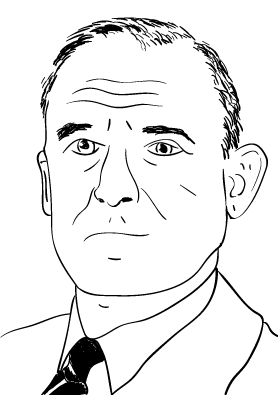
Drawing: Newton Llorente
William F. Giauque Ph.D.
The Nobel Prize in Chemistry 1949
Award: "for his contributions in the field of chemical thermodynamics, particularly concerning the behaviour of substances at extremely low temperatures"
Percy Bridgman Ph.D.
The Nobel Prize in Physics 1946
Award: "for the invention of an apparatus to produce extremely high pressures, and for the discoveries he made therewith in the field of high pressure physics
John Northrop Ph.D.
The Nobel Prize in Chemistry 1946
Co-Nobelists James B. Sumner, Wendell M. Stanley
Award: "for their preparation of enzymes and virus proteins in a pure form"
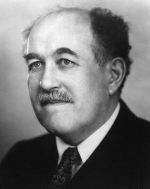
Photo: public domain/Wikipedia
Otto Stern Ph.D.
The Nobel Prize in Physics 1943
Award: "for his resonance method for recording the magnetic properties of atomic nuclei"
Clinton Davisson Ph.D.
The Nobel Prize in Physics 1937
Co-nobelist George Paget Thomson
Award: "for their experimental discovery of the diffraction of electrons by crystals"
Harold C. Urey Ph.D.
The Nobel Prize in Chemistry 1934
National Medal of Science - Physical Sciences 1964
Award: "for his discovery of heavy hydrogen"
Irving Langmuir Ph.D.
The Nobel Prize in Chemistry 1932
Award: "for his discoveries and investigations in surface chemistry"
Robert A. Millikan Ph.D.
The Nobel Prize in Physics 1923
Award: "for his work on the elementary charge of electricity and on the photoelectric effect"
Discover Your Abilities and Aspirations!
 $10 $25 $50 $100 Other
$10 $25 $50 $100 Other
Tax Exempt 501(c)3 Non-Profit Organization
Any Currency
“…the peace that is found in libraries and laboratories…” - Louis Pasteur
Copyright © 2023 Ganga Library Inc. All Rights reserved.;
